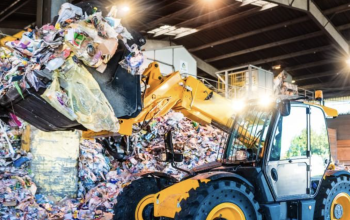When the Covid-19 pandemic put the whole wedding industry on hold, four out of five couples postponing their wedding decided to wait until 2021. Regardless of their rescheduled dates, 53% of couples now anticipate hosting a smaller wedding to accommodate social distancing.
The pandemic has also impacted people’s finances and attitudes towards spending. As the editor of Hitched told The Independent, couples are reprioritising “what’s important to them on their big day with a focus on guest experiences and more quality time spent with each person.” So what wedding trends can we expect to change in the wake of coronavirus?
1. A move towards buying more ethically
Not only does buying ethically ensure producers are treated fairly and environmental degradation is kept to a minimum, it’s also intrinsically linked to preventing an increased emergence of epidemics. A recent David Attenborough BBC documentary explained how many deadly viruses, including Sars, Ebola and Covid-19, can be traced back to human intrusion into natural habitats. As Extinction: The Facts made clear, our destructive relationship with nature is putting us at greater risk of pandemic diseases.
As a result, more couples may opt for ethical and eco-friendly alternatives for many aspects of their marriage. Ethical engagement rings are one such item likely to become more popular. Unethical diamond mining has many detrimental impacts on the environment including soil erosion, deforestation, and ecosystem destruction, not to mention social and political impact. As bespoke jeweller Taylor & Hart explains, by buying an ethical engagement ring, couples prevent tarnishing a monumental moment in their lives with a product that has not been ethically sourced and could inadvertently accelerate the issues we are facing today.
2. More support for local businesses
Couples are more likely to source items such as food and decorations from small, independent, local businesses. It’s no secret that small businesses were among the hardest hit by the Covid-19 pandemic, with a recent McKinsey online survey of UK SMEs showing that 80% of small businesses reported their revenues were declining in June 2020.
Meanwhile, the success of such schemes as Eat Out To Help Out has demonstrated that local communities are keen to help support their local economies where possible. Expect to see more seasonal British wedding menus as couples support local farms by purchasing their produce, or catering from independent eateries. This approach is also likely to be less expensive, a vital consideration in the face of current economic uncertainty.
3. Personalised acts of gratitude
Couples are likely to go the extra mile when thanking guests on their big day, showing how much their nearest and dearest mean to them. The profound impact of the pandemic has taught us all to cherish our loved ones more than ever, so weddings will now take on a much deeper meaning — it’s a time to appreciate good health, security, family and friends.
As Hitched has reported in its list of predicted wedding trends of 2021, it’s likely that there will be more personalised gestures in store, such as thank you notes on seats and baked goods on offer. Acts of gratitude and human kindness will be key themes, with couples incorporating charitable aspects into the day by encouraging guests to donate to their favourite charities instead of buying wedding gifts.
4. Weekday weddings
With a backlog of 2020 weddings now taking place in 2021, more couples will be trying to book a venue than ever before. Weekends are traditionally the most popular time to tie the knot, but increased competition means that lots of ceremonies will be held during the week. Emma Caddis, owner of an exclusive wedding venue in Cornwall, told the BBC that she had already seen an upturn in midweek enquiries.
There are many benefits to hosting a wedding mid-week. Perhaps most importantly, weekday weddings will cost less — choosing not to have your wedding on a Saturday could save you around £5,340 — and increase the likelihood of venues and suppliers being available. Couples will then be able to put any extra cash they saved towards their honeymoon or something they’re saving for.
5. A more homemade touch
For couples looking to cut costs elsewhere, DIY decorations are likely to become a mainstay of marriage ceremonies. Lockdown saw many people learning new skills and crafts, so many brides and grooms-to-be are well placed to get their creative juices flowing. Adding elements of DIY to your wedding could also be a lovely bonding experience as you can get your friends and family involved. Wedding planner app Bridebook expects 75% of weddings to include DIY elements, from personalised table settings and photo displays, to homemade wedding cakes baked from scratch.




